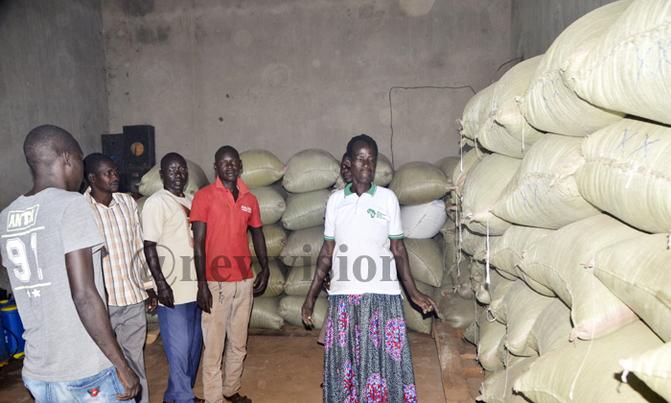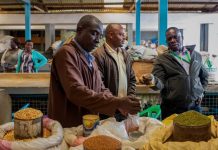Africa-Press – Uganda. Aidah Abia is a farmer based in Kole district and she is a CAT (Commodity Association Trader) and a Community Based Seed Multiplier producing soybeans.
However, due to the COVID-19 pandemic, her participation in farming activities had reduced drastically.As Commodity Association Trader leader supported by Sasakawa Africa Association, Abia connects and helps rural farmers to access markets and sell their commodities.Abia, who owns eight acres of soybeans, leads a group of 30 members under the auspices of Balo women and youth group in the Bala sub-county, Kole district.”We started our farmer’s group years back to help each other access technical assistance and markets for our products, especially soybeans,” Abia said.
She says she has managed to plant four acres of soybean last season, earning over Sh30m. Through a savings group, they have managed to buy a sorting machine of soybean at 2.5m.”We have group farmers saving schemes, where we managed to raise some money and bought machines that help us to work on our soybeans,” he said.During the period of the pandemic, farmers had limited access to inputs (seeds, chemicals, and equipment). It was against this background that SAA strengthened training on seed production and sensitized farmers on how to access seed from community-based seed producers in their community. Aidah is one of the seed producers that received training on seed production and has been supported to acquire production (planters) and post-harvest handling equipment (threshers). This has increased her production and income.Juliet Nakitende, a program officer and communication focal person, Monitoring and communication, Sasakawa Africa Association says that during the pandemic number of farmers reported an increase in food prices and reduced household food rations.”Most of the businesses engaged in the supply of agricultural inputs were considerably affected by the pandemic. Restrictions put in place highly limited access to agricultural inputs, limited sales, increase in input prices, and delayed payment of debtors,” she said.The majority of agricultural private service providers observed a sharp decline in demand for services. This was further marred by unreliable and costly transport services and limited working hours due to imposed curfews as part of lockdown measures.






